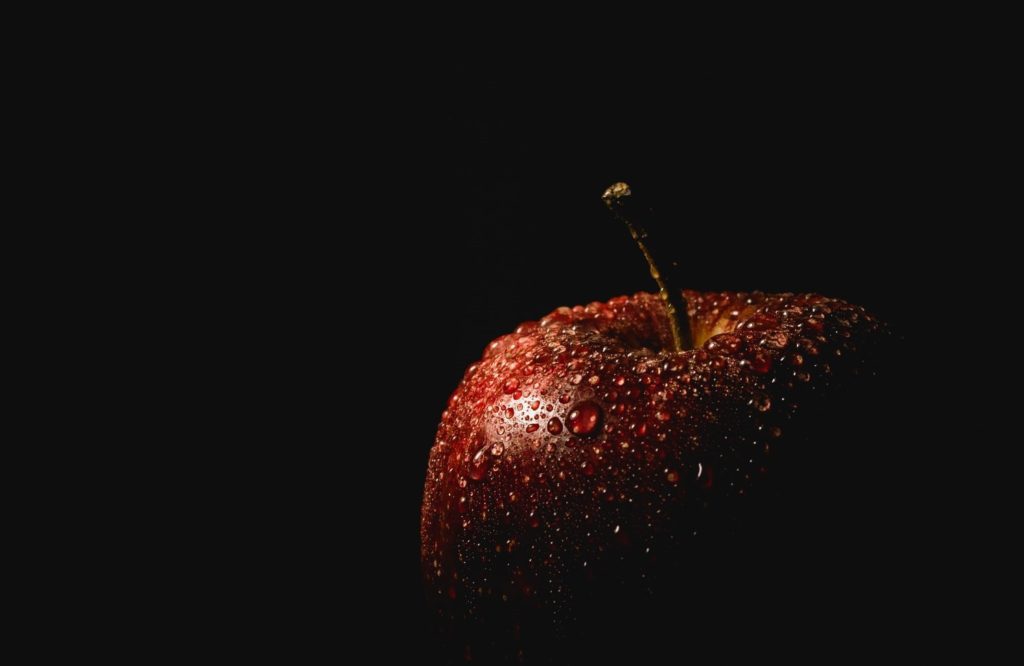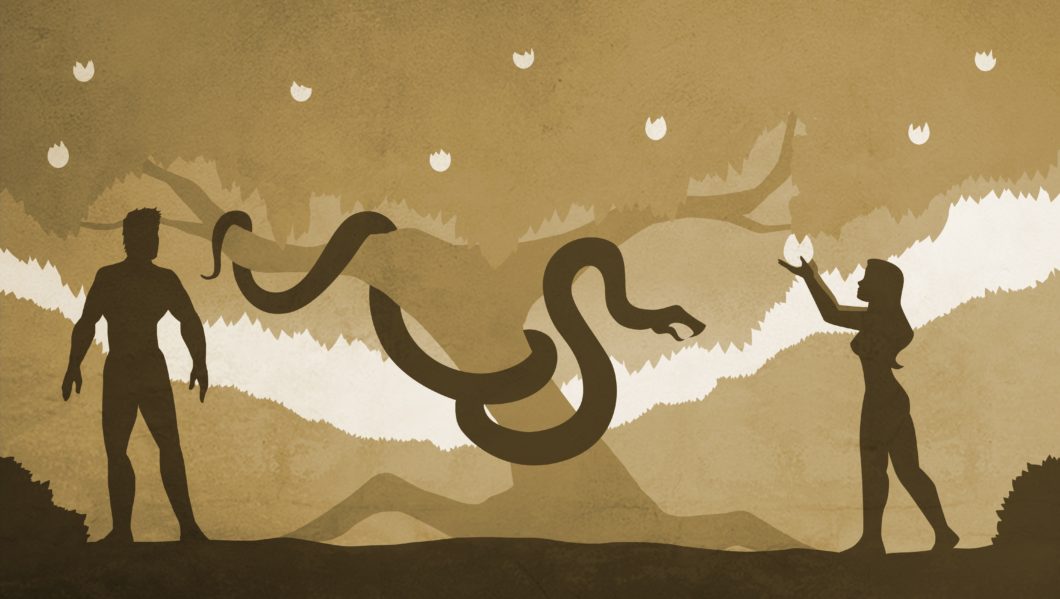Adam would have enjoyed the most amazing life in the Garden of Eden had he trusted God, but instead he listened to Satan and his own sinful desires. Adam’s fall shows us the consequences of disobeying God’s commands. How great it would be if we could all obey God the first time. Instead of yielding to our carnal appetites and reaping the destruction that lifestyle brings, we should apply God’s word as a blueprint for our lives. If we live how God instructs us, we can avoid painful lessons from our would-be mistakes.
Adam was the first human to ever exist and he was created for a special purpose: to grow God’s family. From the beginning, Adam had a special relationship with God because, unlike the animals, he was made in His image. Soon after God breathed life into Adam, God made Eve to be Adam’s wife. Adam and Eve were given reign over the earth by God (Genesis 1:26) and lived in the Garden of Eden. Their relationship with God was truly incredible and they even walked with Him in the Garden (Genesis 3:8). In spite of all these amazing experiences Adam shared with God, he was ultimately the first human to defy Him. He and his descendants became doomed to die after he went against God’s explicit instruction and ate fruit from the tree of knowledge of good and evil (Genesis 2:16-17, 3:17-19). God cursed Adam with a life full of tireless work and Eve with pain during childbearing, but He also gave them hope. He promised them that their descendants would struggle with Satan, but overcome him in the end (Genesis 3:15). God was then forced to banish Adam and Eve from the Garden lest they eat of the tree of life and live forever. I believe this was done not as a punishment (that was already doled out in Genesis 3:16-17), but to protect them from becoming immortal and possibly making the consequence of their sin—separation from God—permanent.

It is easy to ascribe our problems to others, but men should learn from Adam’s weakness and own up to their mistakes. Adam lived in a perfect environment and yet he still sinned against God; instead of taking responsibility for his failure, he pointed his finger at Eve (Genesis 3:12). We must take ownership of our mistakes and refrain from attributing them to external factors or other people. Some readers of the Bible are also quick to blame Eve, but truly Eve was under Adam’s charge and God gave His instructions specifically to Adam. Eve sinned only after Satan tricked her, and Adam—having seen the serpent’s treachery—could have followed God, but instead went against Him (1 Timothy 2:14). This story shows us that responsibility falls at the feet of Adam: of men (Romans 5:12). It is vital for men to shoulder the duties thrust upon them, not the least of which is to protect and guide their wives and daughters.

We will all mess up no matter the circumstances because we are human. Seeing Adam hide from God after sinning in the Garden shows us how sin harms our relationships (Genesis 3:10). We feel ashamed when we sin or make mistakes and we want to hide from it and push others away, but the only path forward is to reconcile our damaged relationships (including our relationship with God) and to forgive ourselves. This is the only way to move on. Adam made a grave and lasting mistake, but he repaired his relationship with God and continued on living a full life of 930 years before returning to the dust from which he was made (Genesis 3:19, 5:5). I would consider that a blessed life.
Though Adam was promised death for his sin and expelled from the Garden of Eden, God remained faithful to him through his challenges in life. Even after Adam and Eve’s failure lead them to see their nakedness, God was still willing to help them move on from their mistakes and made them clothing before sending them out of the Garden (Genesis 3:21). Following God will not guarantee our troubles leave us or that the physical scars from our sins will be removed, but in Him we will find spiritual healing and a relationship we can depend on through any struggle.
Even though Adam was destined to die, he trusted God’s good will and named his wife Eve which sounds like a Hebrew word that means “to give life.” Adam was optimistic about the future for his progeny and believed Eve would be a source of life despite their curse. But how can we move on if Adam’s failure was inherited by us all? Thankfully, God does not hold us accountable for the sins of the generations that preceded us and He orchestrated our path to new life though Jesus Christ.

Jesus is the “last Adam” (1 Corinthians 15:45) who gave his life for us so that we could live in spite of the death the first Adam condemned us to. “Just as everyone dies because we all belong to Adam, everyone who belongs to Christ will be given new life” (1 Corinthians 15:22). We can never stop failing as Adam did because of the carnal nature we inherited, but we can take ownership of our mistakes and renounce that nature to follow Christ on the path towards life.
If you liked this article and want to keep up to date with future posts, you can sign up for my newsletter below. I promise I won’t blow up your inbox.

This frames the fall of Adam and Eve as Adam’s disobedience.
However it is clear in Genesis 3:6 ‘the woman saw that the tree was good for food, and did eat, and also gave unto her husband and he did eat’ and in Genesis 3:3 Eve says to the serpent ‘God hath said, Ye shall not eat of it, neither shall ye touch it’
Any good woman will gather fruit for her husband as he provides and protects, but how do you blame Adam for this?
Hey, I appreciate the comments! I’m looking at the KJV (and a few others) and Genesis 3:6 tells us that Adam was with Eve when she was deceived by Satan. Consulting the Hebrew, it seems clear the word “with” is present and not an artifact of mistranslation. So we’re not talking about a situation where Eve went out to gather fruit and then brought some back to Adam before convincing him to eat it against his better judgement. Adam watched Satan’s corruption of Eve and I think it’s fair to say he was also subject to that corruption. Tell me you don’t believe that any mortal man simply watching Satan himself entice another to sin would not possibly be influenced to follow suit? Eve offered Adam to taste the fruit. And that’s all it tells us it was: an offer. In that one single sentence describing her offer, there is no mention of Eve tricking, seducing, or otherwise manipulating Adam into eating the forbidden fruit. On the contrary, there are three whole paragraphs devoted to detailing Satan beguiling Eve (and Adam, who was with her) into eating from the tree. Furthermore, God punishes Adam as if he knew better. If Adam was just some unsuspecting husband eating fruit brought by his wife, I can only suppose God would not have punished Adam to the equal extent (arguably greater) of Eve’s punishment. I think this makes it reasonably clear that while Eve may have been an influencer of Adam’s choice, Satan was and remains the Great Deceiver. Hope that is helpful in clarifying my interpretation.
Adam didn’t listen to satan, he listened to Eve who listened to satan.
Let that be a lesson to all husbands who do whatever their wives tell them.